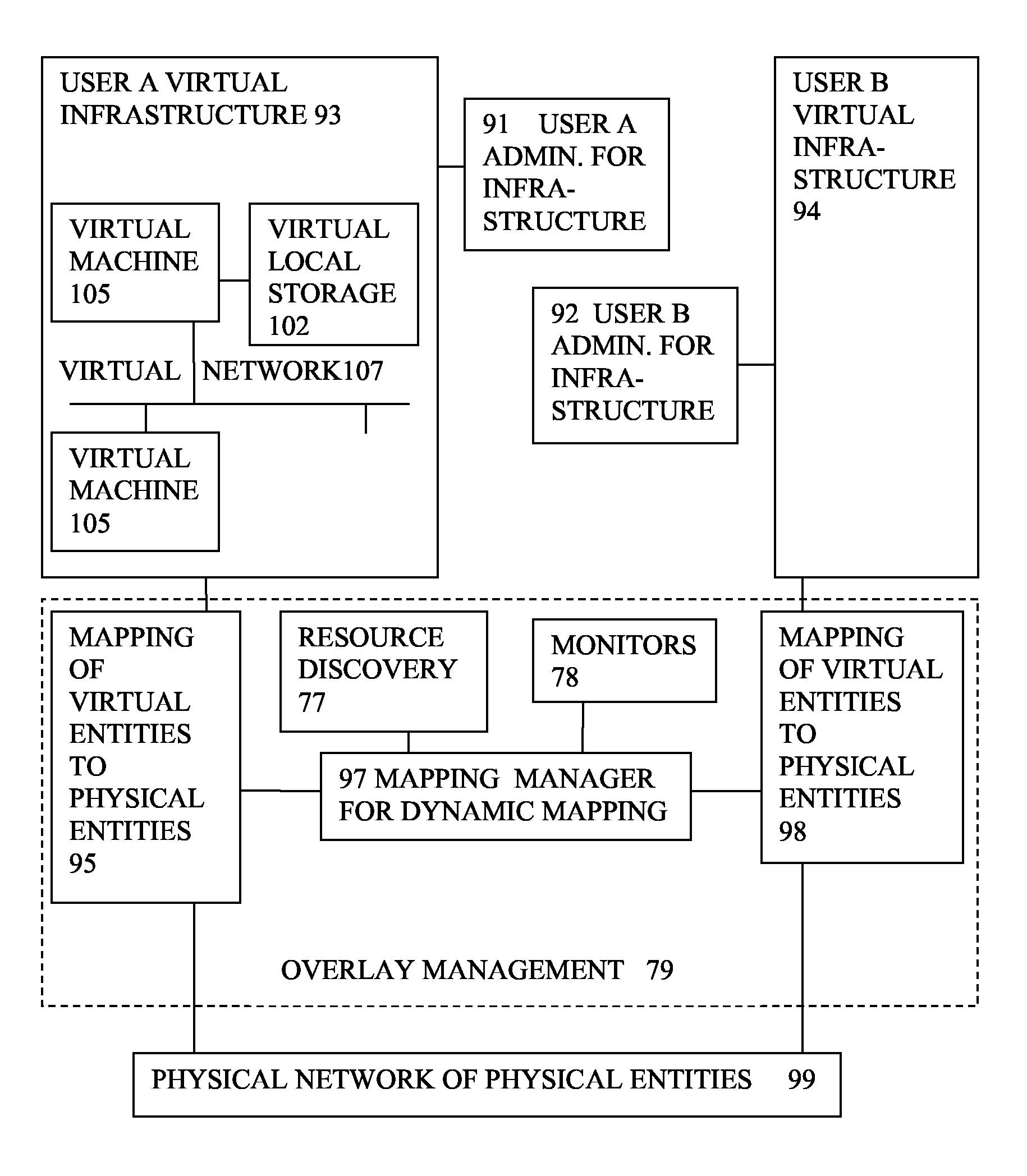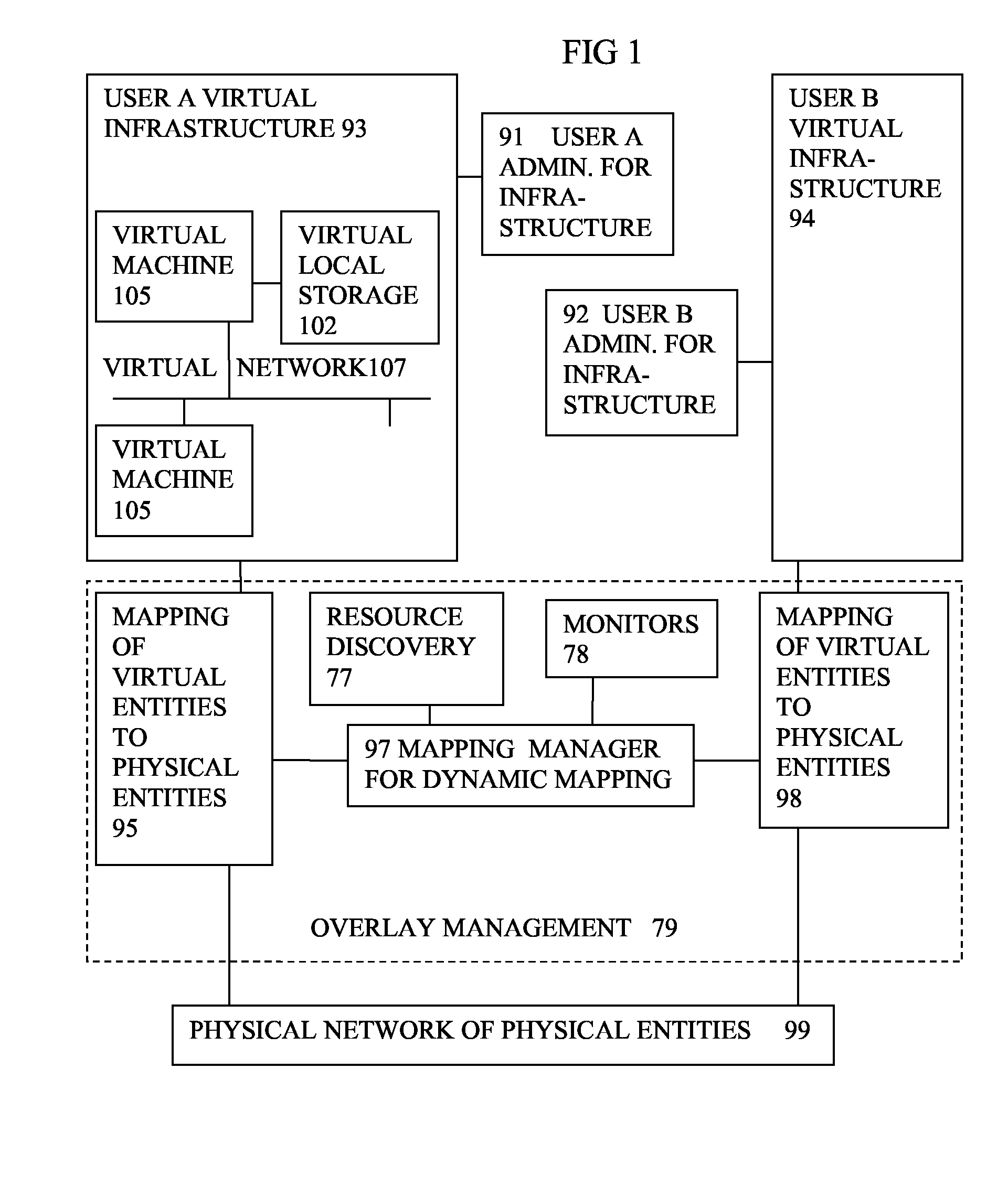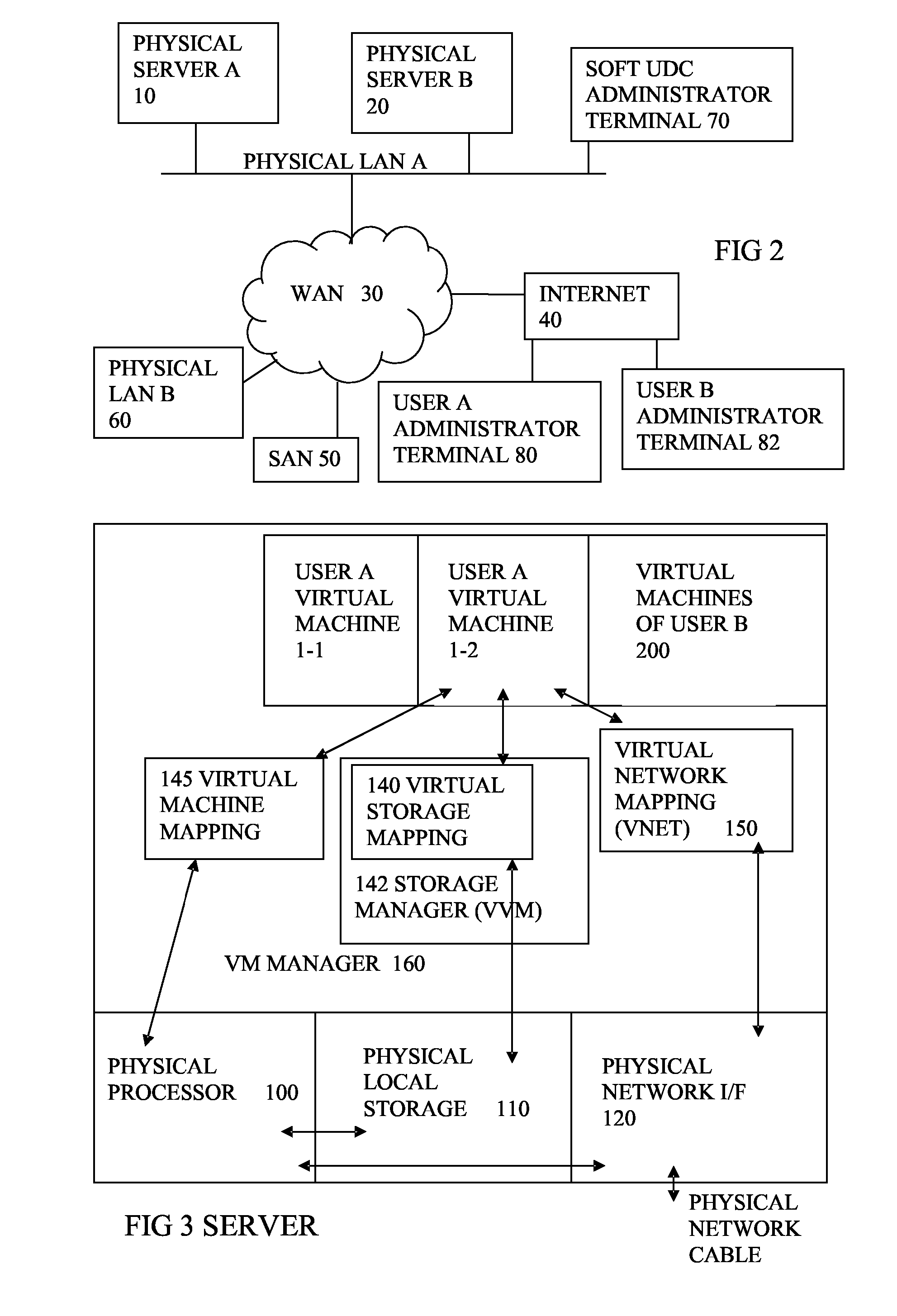Virtual computing infrastructure
a virtual computing and infrastructure technology, applied in the field of virtual computing infrastructure, can solve the problems of difficult management of physical it (information technology) infrastructure, difficult manual changes, high cost and error prone, etc., and achieve the effect of less hardware cost, simple arrangement, and more separation
- Summary
- Abstract
- Description
- Claims
- Application Information
AI Technical Summary
Benefits of technology
Problems solved by technology
Method used
Image
Examples
Embodiment Construction
[0073]In the embodiments described, an existing IT infrastructure is dynamically partitioned into a set of virtual IT infrastructures: Overlay Infrastructures. These will be discussed first in general terms.
Overlay Infrastructures
[0074]Many different overlay infrastructures may share the same physical hardware resources: network, computers and storage devices. Each overlay is configured independently of other overlays and independently of the underlying hardware configuration. The combined number of virtual resources in all the overlays can far exceed the total number of physical resources in the physical infrastructure. The assignment of physical resources to an overlay is varied dynamically to meet business needs.
[0075]An overlay infrastructure is a complete IT infrastructure. Within a overlay infrastructure instances of operating systems run applications. The overlay infrastructure is completely transparent to these operating systems and applications: it is if they were running o...
PUM
 Login to View More
Login to View More Abstract
Description
Claims
Application Information
 Login to View More
Login to View More - R&D
- Intellectual Property
- Life Sciences
- Materials
- Tech Scout
- Unparalleled Data Quality
- Higher Quality Content
- 60% Fewer Hallucinations
Browse by: Latest US Patents, China's latest patents, Technical Efficacy Thesaurus, Application Domain, Technology Topic, Popular Technical Reports.
© 2025 PatSnap. All rights reserved.Legal|Privacy policy|Modern Slavery Act Transparency Statement|Sitemap|About US| Contact US: help@patsnap.com



